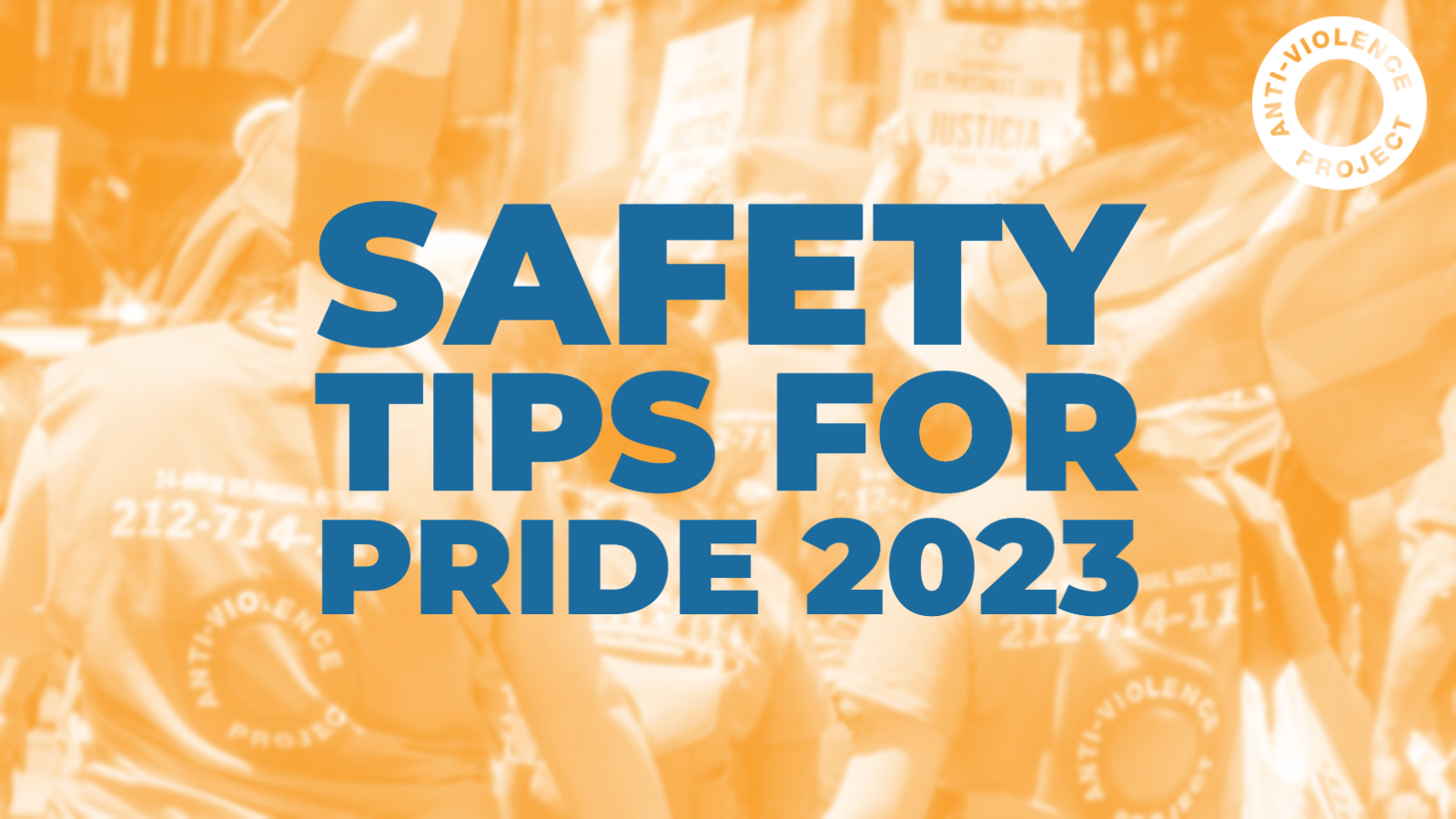
Pride 2023 is here, and as we celebrate community and affirm our place in the world, we must remain vigilant to the increased and very real threats of individual and organized hate violence targeted against the LGBTQ+ community. Millions of us will gather together in groups big and small for rallies, marches, parades, festivals, events and more – celebrating our existence and resilience and honoring the legacy that came before us. But as we know, we are not safe in many spaces and places, and in fact, our communities are facing hate we haven’t seen in decades.
Last year more than 200 incidents of hate violence were reported across the country, including at least 38 folks of transgender experience being killed. We also know many go unreported. As political rhetoric and talking heads fan the flames of hatred and anti-LGBTQ+ hate groups mobilize, it is up to each of us in the community to look out for one another, especially during our sacred month.
Following the fatal mass shooting at Club Q in Colorado Springs, CO in November 2022 and in response to a rash of nightclub drugging and robberies in New York City that claimed the lives of John Umberger and Julio Ramirez, AVP relaunched its Bar Safety initiative and began the LGBTQ+ Safe Spaces Protection Project. These initiatives continue, and we invite our communities and those that stand with us to get involved and volunteer this Pride to help us spread the word and make All Places Safe Spaces 365 days a year.
Whether you are at a bar, nightclub or outdoor event, staying aware and prepared is the best way to protect yourself and others, and AVP is here to help you stay ready so that you don’t have get ready when an incident happens. AVP offers training in community safety planning, for individuals and venues, as well as upstander training for all. And AVP is always here with free safety planning support for the community via our hotline.
AVP recognizes that LGBTQ+ people also face violence from people they know—roommates, dates, intimate partners, hook-ups, even family and friends, and that intimate partner and sexual violence reports can increase during high visibility times like Pride. AVP is here to support survivors and anyone looking to plan for their safety in any way.
See below for some safety tips and as always, if you experience or witness any form violence, or would like safety planning support ahead of going out, contact AVP’s 24/7 bilingual hotline at 212-714-1141 to report and get support.
While preparing for Pride celebrations, it’s important to create a safety plan before attending the events or parties:
- If at all possible, don’t attend Pride events alone. Designate a Pride buddy and safety plan with them.
- Let someone who won’t be with you know your plans for the day/night. Let that person know who you’ll be with and if plans change. Brainstorm in advance ways people can contact and support you.
- Charge your electronics and bring chargers and/or extra battery packs.
- Write down phone numbers of friends or family on a piece of paper in case your cell phone dies.
- Be aware of your surroundings: Locate public spaces and 24-hour businesses to seek help if you feel unsafe.
- Always trust your instincts. If you feel threatened or unsafe, remove yourself from the situation as quickly as possible.
- Notify event organizers or nightclub staff if you face violence or harassment for immediate support.
- Use words to alert bystanders and get away if you can.
- Using a passcode instead of facial recognition can help prevent financial crimes using your device if your device falls into the wrong hands. If it makes sense for your situation, consider temporarily not using Face ID/Facial Recognition and use a digitized password on your mobile devices in risky situations
When gathering as a community for Pride celebrations, it’s important to be intentional in maintaining safety in the space together. Pride goers who witness violence can curb it by intervening, when it is safe to do so.
- Consider your power and privilege in a situation, and consider the ways in which you can be most effective in helping another. Many times the best way to intervene doesn’t require becoming physically involved.
- If you witness hate violence you can make your presence known by asking questions and talking to both the survivor and the perpetrator.
- Speak up, be LOUD, and call out what’s happening: identifying violence by name can help deter it.
- Distract and divert the attacker’s attention by making a scene, and being noisy to draw the attention of others.
- Record what’s happening by taking video on your phone.
- Ask what support the survivor needs and provide it if you can.
- If the violence is being perpetrated by the police, you can record, observe, and verbally intervene, but physically intervening is illegal. Get the names, badges and car numbers of the officers involved.
As always, AVP is here for you whether you’re a witness or a survivor: Save our hotline number (212-714-1141) into your phone and call us for safety planning help or support. Remember, you can text, too.
Want to learn how to be an Upstander or Safety Marshal? AVP is hosting a virtual training on Tuesday, June 15 from 12:30-2 PM. Click here to learn more and register.
